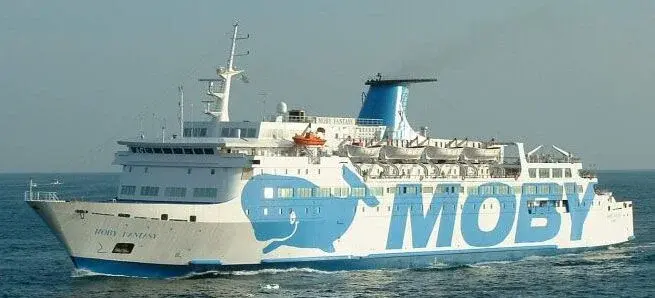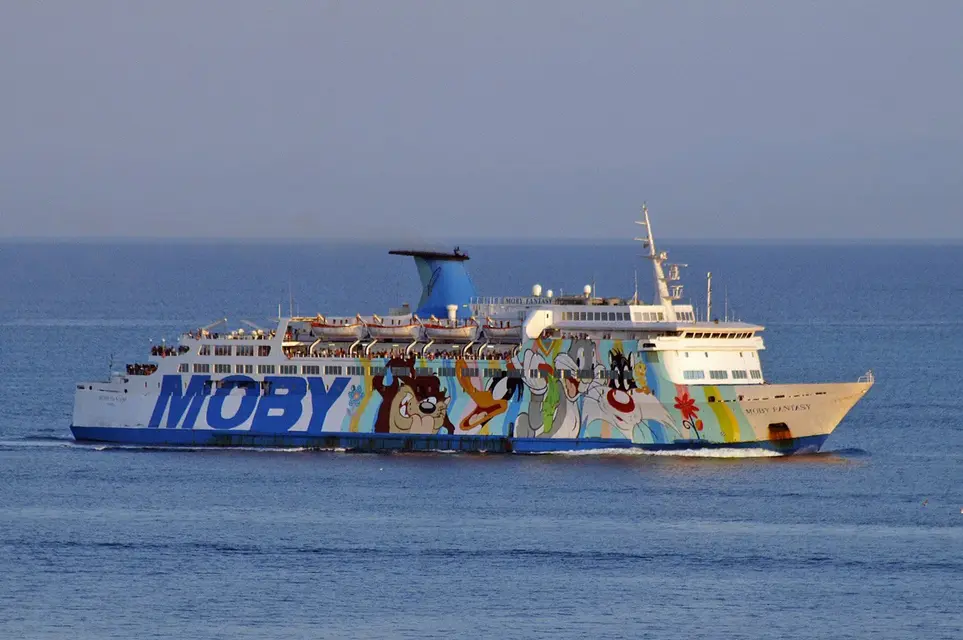the marinery founded its roots in a millenary history, the first ships in degrees of “holding the sea”, date back to the iv millennium BC the sea travel, with a means built by man, is an activity that dates back to the dawns of civilization, when humans learned to use floating artifacts, inspired by the wind, to transport goods and start their trade. today is a highly technological world, with its own language, mixed with scaramanzie and custom.
among these habits there is also that of “saluting” during navigation the coast, a country, a city, somehow linked to the ship. could be the lands of origin of the crew, of the commander, of the shipowner. the common sense then imposes that this greeting happen anyway to a distance of security and in conditions of "tranquillity".
It is not so relevant that the ship has completed this approach as a tribute to an old commander. the very serious thing and that despite today that by sea there are cities floating from 115.000 tons, are authorized by those same authorities that today investigate the disaster. already in fact, the minister of the environment has said that a norm will be launched that will prevent the transit of these giants in areas of particular interest (rules that already exist for the ships carrying goods).
in a couple of previous posts I wrote some inaccuracies I try to fix. There are clearly rules governing life at sea. la solas (safety of life at sea) is an international convention of imo (international maritime organization) aimed at protecting the safety of merchant navigation, with explicit reference to the safeguarding of human life on board born in 1912 following the incident of titanic. most indications on safety equipment and behaviour that the crew must keep in case of emergency are established on this document. Let's see in detail.
- the solas establishes that lifeboats must be present in numbers to ensure a capacity of 125% of potentially on board. strikes and rafts, in short, must be present in sufficient number to accommodate at least 25% more of the people - crew and passengers - potentially present on the ship according to the established capacity and not to the real one (not always the ships have the "every sold out").
- the number of rescuers must be equal to 100% of the people that the ship is enabled to carry (equip more passengers) and that each safety belt is in the cabin. In addition to these, the rules require that an "additional training" of lifesaving places close to lifeboats. about this additional equipment is not indicated the quantity, the important thing that are numerous. this because in the case of an emergency, passengers must recover their lifesaving in the cabin, those who for any reason were not able to perform this operation can count on additional equipment on the bridges, in the common premises and near the pomps.
- all personnel on board must be trained to emergency. for this are established courses for the management of accidents.
- obligation to carry out emergency exercises on board (the first exercise is generally organized the day after departure so the concord had not yet carried out this exercise).
another source of controversy is on the locking/opening system of the doors of the cabins that seem to have been blocked following the black-out. On this subject, the solas does not say much. as in hotels the key has become electronic and international security standards require that all doors should be opened out. the choice on the opening/closing system is at the discretion of the shipowner who defines the systems together with the manufacturer. In any case, each member of the crew is in possession of a mechanical passepartout as well as the buffer battery present in each door, which guarantees the operation for several hours even in case of absence of energy.
we come now to the commander (in the minuscule sennò marcof gets angry).
everyone knows that the commander in case of an accident, must be the last to leave the ship. It is a real obligation imposed by solas since it establishes that the commander is responsible for safeguarding the human life of all passengers is that his task is to coordinate rescue operations by giving instructions to the crew. Such “instructions” must be given until the last, that is, until all have been saved.
if indeed the commander left the ship with the abandonment still in progress, he made a very serious violation. According to international and national law it is in fact more severe to abandon the ship before the time. much more serious than the error committed due to the accident.
but how do you become commander of a ship like the coast agree? Let's start by saying that the string is long. begins with the attendance of a nautical institute that releases the qualification of "official student" then with the inscription at a port captain in the lists of the "seaman". At this point you can board as the third official and after a certain period, you get the rank according to official. After a further 24 months it is possible to take the examination of “authorization to command”. It is only a licence and it is not said that we are entrusted with the command of a ship. In fact it is up to the armor company to choose its commanders often following a signal from an old officer. some commissions evaluate these aspiring commanders on the basis of their competence. In fact, even if today the ships have an electronic navigation, the ability in the maneuver remains an exclusive prerogative of the commander. Besides this a good officer must have administrative capacity, he must know how to manage his crew, he must know how to relate with the often foreign authorities, he must have what is called “carism”, authority and undisputed ability to command also and especially in front of the practical evidence of navigation.
the commander became such, is the absolute master of the ship.


